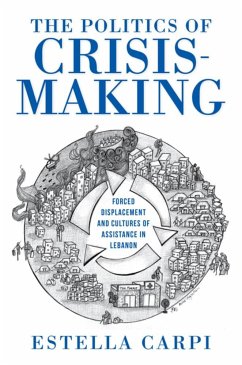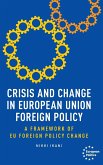Traditionally, humanitarianism is considered a nonpolitical urgent response to human suffering. However, this characterization ignores the context of the politics that created the crises in the first place. In The Politics of Crisis-Making, Estella Carpi exposes how the politics of defining crises affect the social identity and membership of the displaced. Her ethnographic research in Lebanon brings to light interactions among aid workers, government officials, internally displaced citizens, migrants, and refugees after the 2006 war in Beirut's southern suburbs and during the 2011-2013 arrival of refugees from Syria to the Akkar District (northern Lebanon). By documenting different cultures, modalities, and traditions of assistance, Carpi offers a full account of how the politics of crisis-making play out in Lebanon. An important read, The Politics of Crisis-Making reveals that crisis, as an official discourse and framework of action, has the power to shape the social membership of forced migrants and internally displaced people, engendering unequal political, ethnic, and moral economies
Hinweis: Dieser Artikel kann nur an eine deutsche Lieferadresse ausgeliefert werden.
Hinweis: Dieser Artikel kann nur an eine deutsche Lieferadresse ausgeliefert werden.








